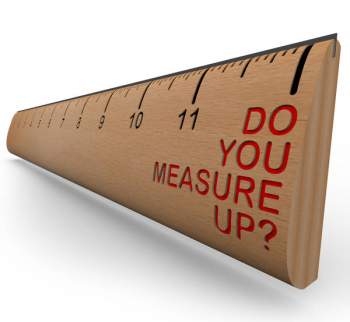
Page Rank 101 For Law Firms

It's hard to be in the online world for very long without hearing about page ranking. Page Rank is a system developed at Google that assigns a number of 0-10 to every indexed web page on the internet. The algorithms behind page ranking are shrouded in mystery, but there are a number of intelligent internet marketers who have figured out a great deal of what makes Google's system tick. In this guide, we'll explore Page Rank, and show ways to use your new knowledge of page ranking to improve your website's performance and effectiveness.
A Brief History of Page Ranking
In many ways, Page Rank is the algorithm that built the multi-billion dollar Google empire. At the time when Google debuted, it was the brainchild of two former grad students who had made a search engine they dubbed “Backrub” as a university project. Their search engine was different from all other search engines at the time, in the mid-1990s, because unlike the other searches out there, theirs depended on a website's popularity, not just its keyword density.
As Google grew from a tiny two-person operation to the world's biggest search engine ever, with a 66 percent market share, the page ranking algorithm continued to grow and evolve. Websites found new ways to try to manipulate Page Rank, and Google's engineers followed right behind with alterations to the algorithm to level the playing field again.
The Logarithmic Page Rank Scale: How it Works
When people first hear about the page ranking 0-10 scale, many assume that it is an arithmetic scale—that is, that the 10% most popular websites will get a 10, the next 10% will get a 9, and so on. However, this is not the way that Google Page Rank works, or has ever worked.
Instead, page ranking on Google is done through what's called a logarithmic scale. Without getting too deeply into the math, what this means is that there are far, far fewer pages at each successively higher Page Rank. In fact, only about twenty websites are able to attain the elusive PageRank of 10 at any time. This means that it's wildly unlikely that your website will ever be able to achieve a 9 or a 10 page ranking number, but that it can actually be relatively easy to move through the first several Page Ranks.
Why Page Rank Matters Today
Today, in one way or another, page ranking will determine the vast majority of how well your website performs in search rankings. If you want people to see your website in the first page of search results, you need to be at least somewhat concerned with the Page Rank not only of your website, but also of the websites linking to you.
Today, inbound links account for the majority of your search engine rankings, and not all links have the same value. If you're getting a link from a website with a high PageRank, you can expect a much bigger search results climb than if you got a link from a website with a low PageRank. In fact, if you get too many links from sites with lower page ranking, you can actually be listed as over optimized by Google and penalized.
Factors That Affect Page Ranking in 2012
To say that Google bases Page Rank on a large number of variables is a bit of an understatement. Currently, Google claims that Page Rank is based on over five hundred million variables, and so figuring out how to get the best page ranking is somewhat challenging.
However, we do know a lot about what affects PageRank, just because of seeing what works and what doesn't. We know that popularity affects page ranking more than just about anything, and that Google also takes into account the total PageRank of a website (the PageRank of all individual pages on a website added together).
We also know that your Page Rank can be significantly affected by the linking patterns you're using. If you're linking to a large number of low quality sites and low quality sites are the only ones linking to you, you can expect your page ranking to stay quite low.
Improving Your Page Rank: Tips and Strategies
One of the best ways that you can improve your page ranking is to make sure that you're part of social networking websites. These sites have many pages with high Page Rank, and when you build inbound links from social networking sites you'll receive a bigger overall boost to your search rankings.
Many people try to automate their link building in order to enhance their page ranking without doing a lot of work. This can seem like an excellent strategy in the short term, but it is likely to fail on a longer time scale. Google has procedures in place to detect link automation, and you are very likely to be penalized by Google if you are seen to be over optimizing your site by automating link building.
Monitoring Your Page Rank
You should keep track of your own website's page ranking periodically, to make sure that it hasn't gone up or down unexpectedly. If you see a negative change to your Page Rank, you may want to check on your links. If a large number of links from your website are coming from low Page Rank websites, or you've recently had a number of links stop coming to your site, you may want to ask webmasters to remove or replace your links, respectively.
If your Page Rank has gone up unexpectedly, congratulations! You should make sure that you know why your page ranking has increased, and you may want to continue growing your website's inbound link numbers using the same strategies that you've been using. Often, PageRank can go up (especially in the lower levels) from just one or two pieces of widely circulated viral content, so it's absolutely achievable to boost your rankings quickly, especially when you're just starting out.



















